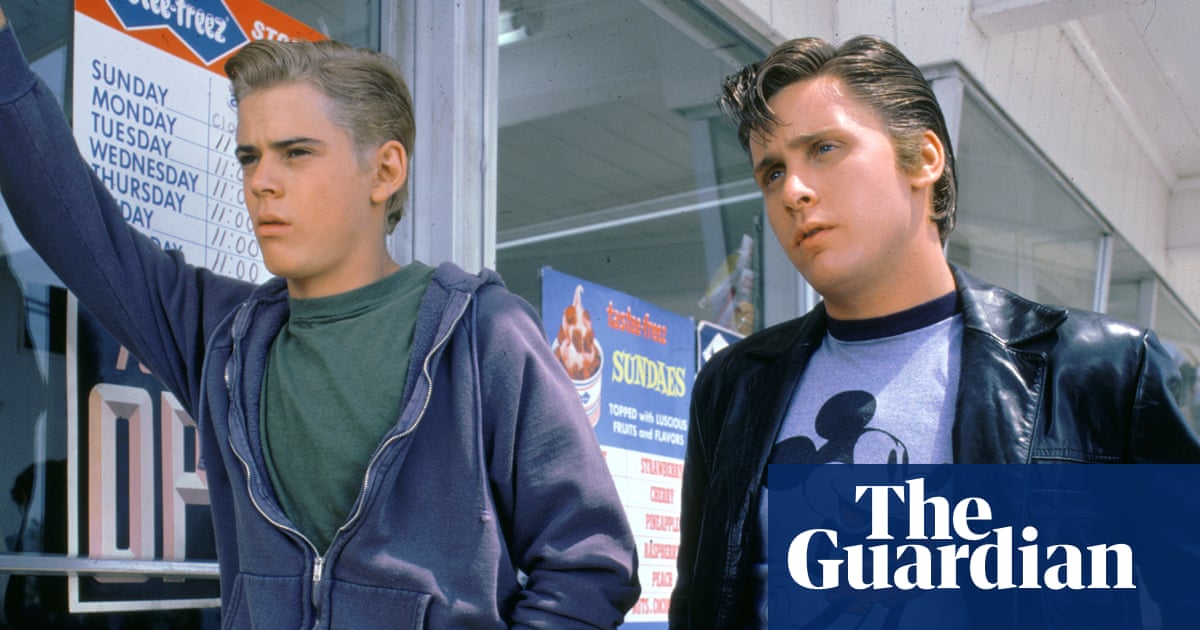Elizabeth Day is the right person to write a state-of-the-nation novel about our society at a point when so many are convinced it’s failing. She herself has made a successful franchise out of failure with her How to Fail podcast. She understands failure and she understands that it may be too tempting to luxuriate in it, rather than seeing how quickly it can turn into success and back again.
Day began her career with thoughtful, intimate novels about the fault lines of family life. Scissors, Paper, Stone and Home Fires were old-fashioned, heartfelt works about how cruelty trickles down the generations and how lives can be tentatively remade. Then she more ambitiously embraced the thriller genre on the one hand and a larger social canvas on the other. This has presented dangers: her last novel, Magpie, risked sacrificing characterisation altogether for the sake of a grand midway reveal; before that, The Party was so plot-driven and backstory-laden that it lacked the fine-grained intimacy of her earlier works. One of Us is a sequel to The Party, but it’s a much stronger, more distinctive novel, better read as a standalone work. Here she has returned to the intimate family dynamics at which she excels, combined with a brilliantly propulsive, almost whodunnit-ish plot and an astute analysis of power. Because the family in question is now at the heart of British political life.
Martin Gilmour and Ben Fitzmaurice are schoolfriends in their late 40s. Martin was once an awkward scholarship boy, in love with the glamorous, aristocratic Ben, who protected him from bullies and asked for absolute loyalty in return. When Ben killed an undergraduate girlfriend drink-driving, sober Martin pretended to be the driver. Since then, Ben has continued to manipulate his way out of trouble and into power: he’s now energy secretary, and has managed to cover up the scandalous circumstances of his sister Fliss’s suicide. At the end of The Party, Ben cut Martin off. Now, a decade later, Ben’s wife, Serena, invites him to Fliss’s funeral, wanting to wreak revenge on her philandering husband. Martin is seeking revenge of his own for being dropped, and will be aided by Ben’s daughter, Cosima, an angry teenager keen to bring her father down.
Martin’s stylish, witty first-person narration is interspersed with third-person sections told from the point of view of Serena, Cosima, a rival Tory MP called Richard Take, and even Fliss from beyond the grave. There are several transformations here, and the book hinges on the question of whether the moral revolutions taking place for the characters can parallel some kind of societal change. This is where Richard Take comes in. He, like Martin, resents the Fitzmaurices of the world for their easy assumption of power. Disgraced for watching porn in the House of Commons, he has become an unexpected success after appearing on Shit Happens!, a reality TV show where celebrities become sewage workers. Now he pledges support to Ben’s campaign to become prime minister, before joining Martin in trying to destroy him out of some combination of self-interest and a genuine desire to change politics.
The novel is wilfully big-boned, mixing levity and real substance, and risking unwieldiness as it does so. The social satire can feel like a series of memes – which says as much about the banality of our moment as about Day’s writing. Cosima is committed to “Oblivion Oil”, hurling paint at sculptures; her brother is a fan of Jordan Peterson; Ben’s unscrupulous, expensive lawyer is the father of the boy who gets Martin cancelled at the university where he lectures for using the word “Orientalist” (“Yes, I do identify as male so it’s fine to call me ‘Mr’,” the student swaggers). All this would be too familiar to be interesting if Day hadn’t taken the unpredictable and energising step of centring her story on the inner lives of Tory MPs, and seeing them as capable of change and redemption. She has also created a genuinely unreliable narrator in Martin, and set herself the extra challenge of showing him becoming more reliable; while through him she investigates the value of the language of therapy.
The novel opens with Martin sent by his university to a therapist to address his “cultural sensitivity issues”. He needs, he is told, to acknowledge his own vulnerability, to feel his own feelings. Martin is sure that the flaw in this is that he’s a much worse person than the therapist can believe. “I don’t know how she’d cope if I told her I’m fundamentally repellent. Unlovable even by my own shoddy standards and incapable of loving others.” But over the course of the novel, he discovers – with the reader always a couple of steps ahead of him – that his repellent actions are driven by love rather than hate; he learns, unwillingly, to feel.
What’s interesting here is that Day is able both to skewer the therapist’s platitudes and to show how they contribute to the novel’s complex vision of redemption. Like so many of Day’s characters, Martin is damaged by his childhood, and does become happier after he accepts his own feelings and allows himself to be open to ordinary contentment. Ben, Serena, Cosima and even Richard Take are learning similar lessons, and because some of them have political influence, there’s the potential here for a new kind of politics in which the ordinary life matters. Ultimately, it’s appropriate that the therapy-speak proves redemptive. It’s the language of our moment, and Day’s project is in part to show that there is more energy and potential in our moment than we might fear.
But, thankfully, there are other kinds of feeling and authority in the mix too. Serena and Cosima both become preoccupied by mythical figures who have found grander, more violently exciting ways to deal with wrongs, from Judith slaying Holofernes to Lilith vowing disobedience, and these are never quite forgotten. Ben and Serena are at their closest when they can understand “each other’s wickedness in a way no one else can, and what is this if not a kind of love?” Shared wickedness as love? Why not? One of Us is all the better for not giving up on its own darkness.
after newsletter promotion
Lara Feigel is the author of Look! We Have Come Through!: Living With DH Lawrence (Bloomsbury)

 2 months ago
54
2 months ago
54

















































